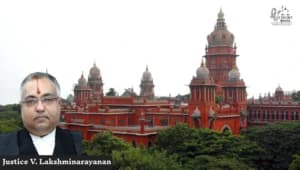In a significant development concerning student rights and academic regulations, the Punjab and Haryana High Court has sought a response from Panjab University over a controversial clause in its admission process. The clause mandates new students to submit an affidavit agreeing not to organize protests on campus without prior permission, failing which their admission could be canceled.
The matter was heard by a bench of Chief Justice Sheel Nagu and Justice Sanjeev Berry, who raised serious constitutional concerns regarding the balance between two fundamental rights: the right to protest under Article 19 and the right to education.
"Which right can be put on a higher pedestal, right to form association or right to education?... If right to protest or form association under Article 19 comes in conflict with the main function of university, you have to choose between your right to protest and right to education, participate in the classroom... both can't go hand in hand when there's conflict,"
— remarked Chief Justice Sheel Nagu during the hearing.
Read also:- Panjab University Students Oppose Affidavit Restricting Campus Protests; Write to High Court Chief Justice
Senior Advocate Akshay Bhan, representing the petitioner student, strongly objected to the affidavit clause. He argued that while action may be justified if students block academic activities, requiring a waiver of a constitutional right to protest is neither legal nor acceptable.
"The clause demanding prior permission to protest at a designated area and threatening cancellation of admission for non-compliance is arbitrary. There are no defined rules or procedures for such cancellation,"
— submitted Akshay Bhan.
Read also:- P&H High Court Rejects Plea to Quash Panjab University Law Entrance Exam for Being ‘Tough’
The plea also challenged another clause that bars students from allowing "outsiders" in any protest or rally to avoid "ugly scenes." Bhan stated that students have no control over visitors and added that even former students addressing gatherings should not justify such severe action like cancellation of admission.
On the university’s side, its counsel cited previous incidents where protests turned chaotic, including one involving the Vice President’s visit which disrupted university operations.
"In the last few decades, this has become a big problem for universities; someone has to take strong action,"
— observed Chief Justice Nagu, adding:
"For 10 years in Madhya Pradesh, all student associations were banned. There was so much peace… Universities could function well."
Bhan, in a lighter vein, responded:
"The more you suppress, the more it is likely to protest."
The Court acknowledged that the last date to submit the affidavit is July 17, and therefore directed students, including the petitioner, to file the affidavit, clarifying that it would be subject to the final outcome of the case.
Read also:- Delhi High Court Rules Past Association Grounds to Disqualify Arbitrator Under Arbitration Act, Section 14
While adjourning the matter to September 4, the Court stated:
"Let reply be filed by the next date of hearing. The affidavit shall be filed by the students including the petitioner but shall be subject to the outcome of the matter."
Case Title: Archit Garg v. Panjab University














